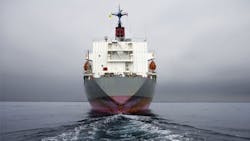Like many years that have preceded it, 2016 should be an eventful 12 months with respect to U.S. economic sanctions and embargoes. Much of what is likely to happen in 2016 is the result of action taken in 2015: the easing of sanctions on transactions in and with Cuba; agreement with Iran by which sanctions can be eased if Iran submits to regular inspections of its nuclear program and take steps to halt that program; the extension of sanctions on Russia (and Ukraine) and Venezuela; and the easing of sanctions on Burma (Myanmar), Liberia and other sanctions targets.
While it is impossible to know exactly what lies ahead, this article attempts to anticipate what could be forthcoming in 2016, and how manufacturers may be affected.
Cuba
In 2016, U.S. companies and individuals should continue to be able to pursue potential business opportunities in and with Cuba, including through travel to the island in certain scenarios. Professional travel (subject to conditions) to Cuba was authorized in early 2015, but it is not clear how many U.S. companies took advantage of that authorization. In addition, some companies encountered difficulties with respect to conducting financial transactions (paying for airfare, hotel accommodations, meals, etc.) incidental to even permissible travel to Cuba. It should get easier to conduct financial transactions with or involving Cuba as more U.S. financial institutions become accustomed to such transactions.
Whether U.S. manufacturers will be able to sell directly to Cuba and/or buy from Cuba in 2016 is harder to predict. It will depend on the industry and products involved – indeed, some U.S. exports to Cuba are already allowed. It will also depend on whether the U.S. Congress takes legislative action to lift the continuing embargo on Cuba. It is possible, though unlikely, that such action would come prior to the 2016 U.S. election; accordingly, the situation with Cuba is unlikely to change much in the coming year.
Iran
In 2016, it seems likely that the United States will ease sanctions against Iran (assuming the country fulfills its obligations under the July 2015 agreement reached between the United States, its European partners, and Iran). Even if Iran meets its initial obligations, however, the United States is only committed in the short term to introducing limited sanctions relief, and primarily for the benefit of non-U.S. companies. U.S. manufacturers, other than those in the commercial aircraft space, will probably not benefit much from these limited measures. Thus, as with relief under U.S. sanctions on Cuba, at least for most of 2016, only limited relief is anticipated for U.S. manufacturers seeking business in and with Iran.
Burma
Although the United States continues to impose targeted sanctions on Burma, the U.S. government took steps just after Thanksgiving intended to make it easier for companies to export products to the country. According to press reports, shipments to and through Burma have been getting delayed – or even halted – because of the significant ownership interests that prohibited Burmese parties still play in the country’s economy. The steps taken by the United States in December should make it easier for U.S. manufacturers to conduct business in and with Burma in the 2016.
Liberia
Conducting business with Liberia will also be easier, as the U.S. government has lifted virtually all restrictions on conducting business in and with the West African nation. (Until fairly recently, U.S. companies were prohibited from conducting many transactions with the country and with designated parties there.) We assume that many U.S. manufacturers have not been too active pursuing the Liberian market, and may not necessarily start now. Nonetheless, to the extent that Liberia is or becomes a more attractive market, it will be ever easier to conduct business with the country in 2016.
What’s Next
In addition to the steps summarized above, all of which should impact manufacturers positively in 2016, it is almost inevitable that, in 2016, the U.S. government will take steps to limit U.S. companies from trading with certain countries, governments, entities, and individuals.
The most likely target is the Islamic State (IS). While it is hard to imagine that U.S. manufacturers are interested in trading with IS, the introduction of extended sanctions on IS could ensnare unwary exporters that inadvertently conduct business with affiliates of IS. At present, the U.S. government has been targeting entities and individuals affiliated with IS. For example, in September, the United States designated 15 parties apparently involved in funding the organization. In November, an individual was designated for facilitating Syria’s purchases of oil from IS. This pattern is expected to continue in 2016.
With respect to Russia, most do not foresee much of a change –the United States will most likely maintain targeted sanctions against Russian entities and individuals, with occasional additions to the list of targeted parties. The situation is similar as to Venezuela, the United States currently maintains targeted sanctions on Venezuelan entities and individuals, and the list of targeted parties is likely to expand at least slowly in 2016.
Summary
Because U.S. sanctions are dynamic and change regularly, U.S. exporters need to ensure that they screen transaction partners on a routine basis: any transaction with a sanctioned country or party could lead to significant penalties and reputational damage. The past is prelude and, as in the past, sanctions compliance will be essential for any company involved in international trade in 2016.


